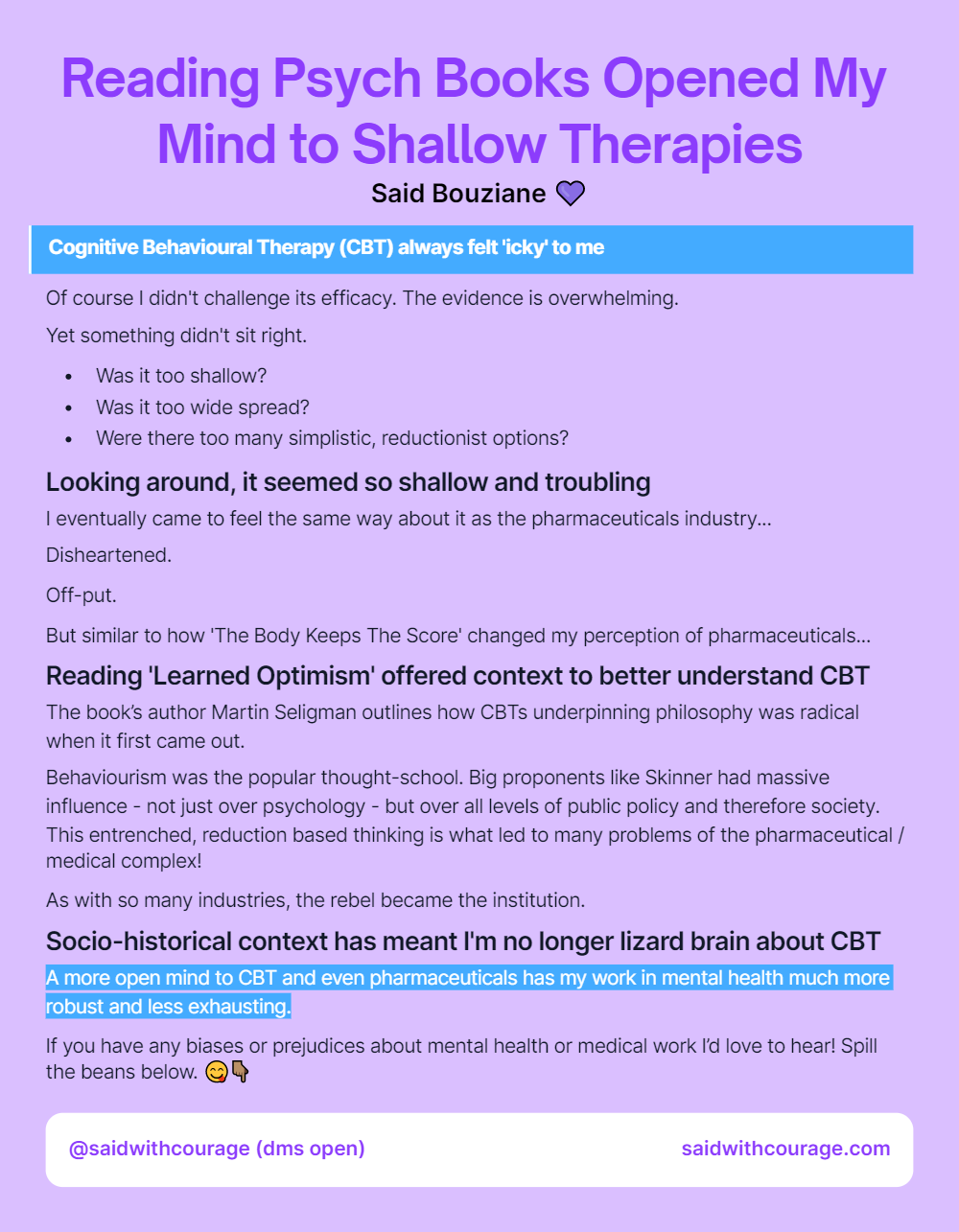Cognitive Behavioural Therapy (CBT) always felt ‘icky’ to me
Of course I didn’t challenge its efficacy. The evidence is overwhelming.
Yet something didn’t sit right.
- Was it too shallow?
- Was it too wide spread?
- Were there too many simplistic, reductionist options?
Looking around, it seemed so shallow and troubling
I eventually came to feel the same way about it as the pharmaceuticals industry…
Disheartened.
Off-put.
But similar to how ‘The Body Keeps The Score’ changed my perception of pharmaceuticals…
Reading ‘Learned Optimism’ offered context to better understand CBT
The book’s author Martin Seligman outlines how CBTs underpinning philosophy was radical when it first came out.
Behaviourism was the popular thought-school. Big proponents like Skinner had massive influence – not just over psychology – but over all levels of public policy and therefore society. This entrenched, reduction based thinking is what led to many problems of the pharmaceutical / medical complex!
As with so many industries, the rebel became the institution.
Socio-historical context has meant I’m no longer lizard brain about CBT
A more open mind to CBT and even pharmaceuticals has my work in mental health much more robust and less exhausting.
If you have any biases or prejudices about mental health or medical work I’d love to hear! Spill the beans below. 😋👇🏽

